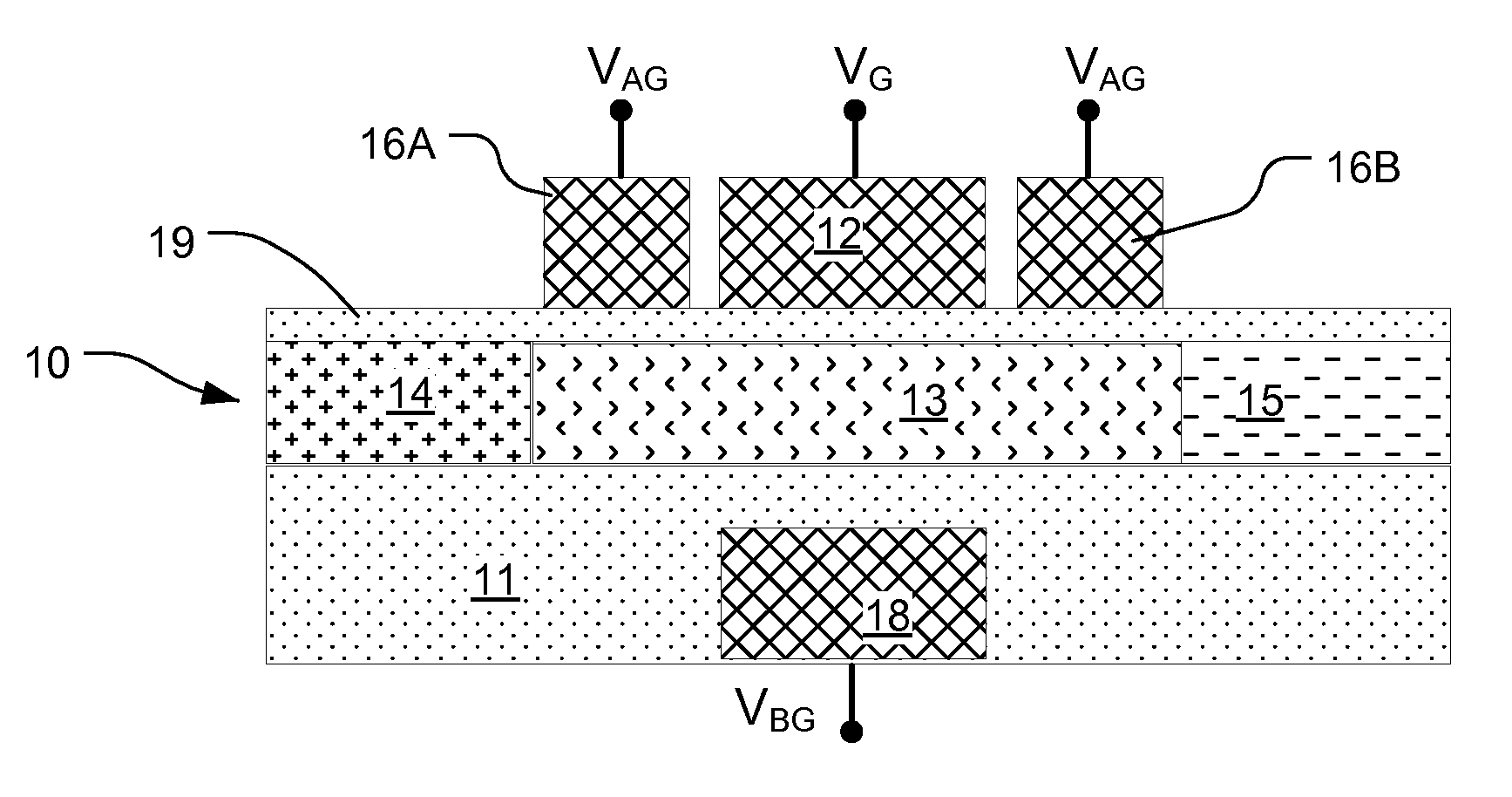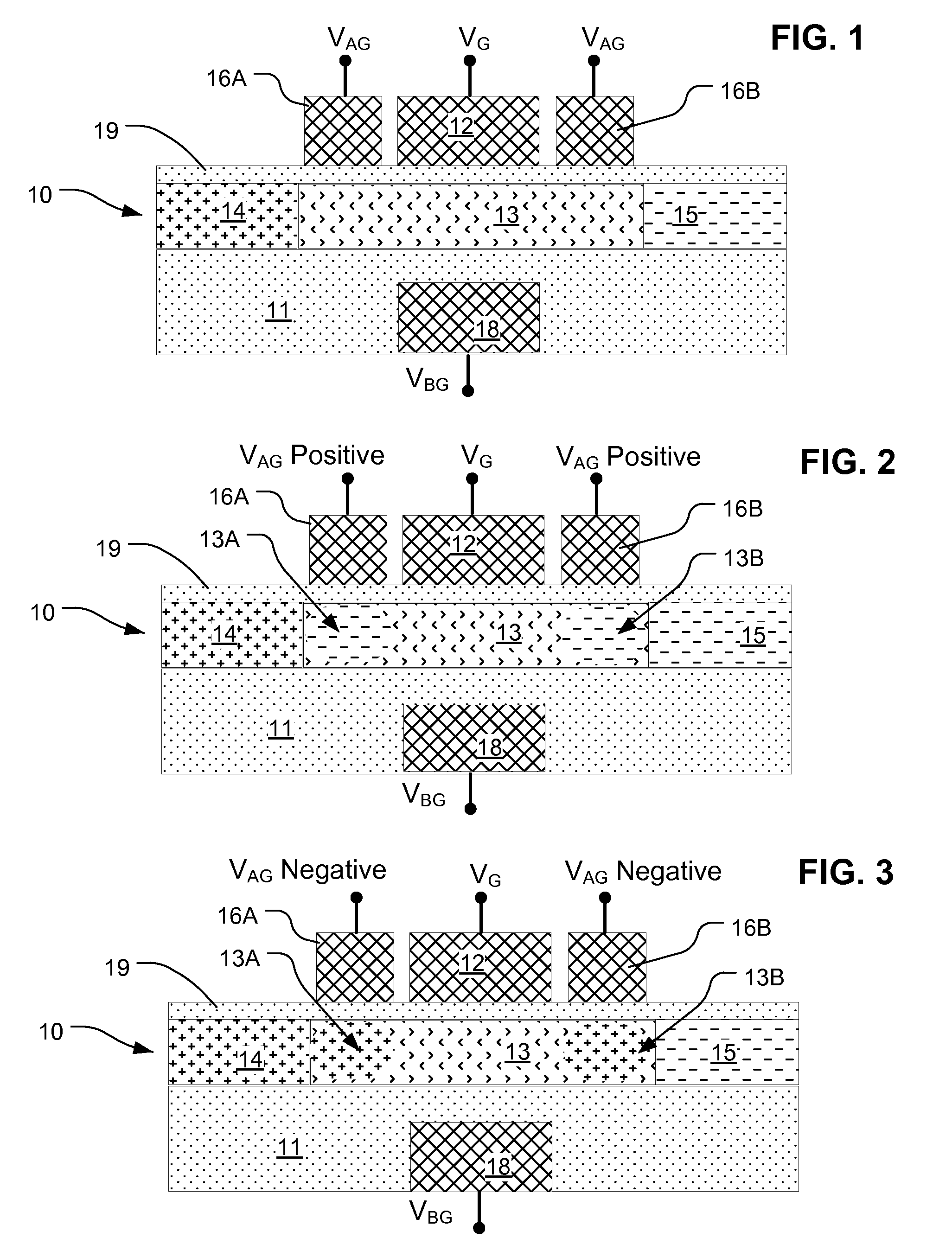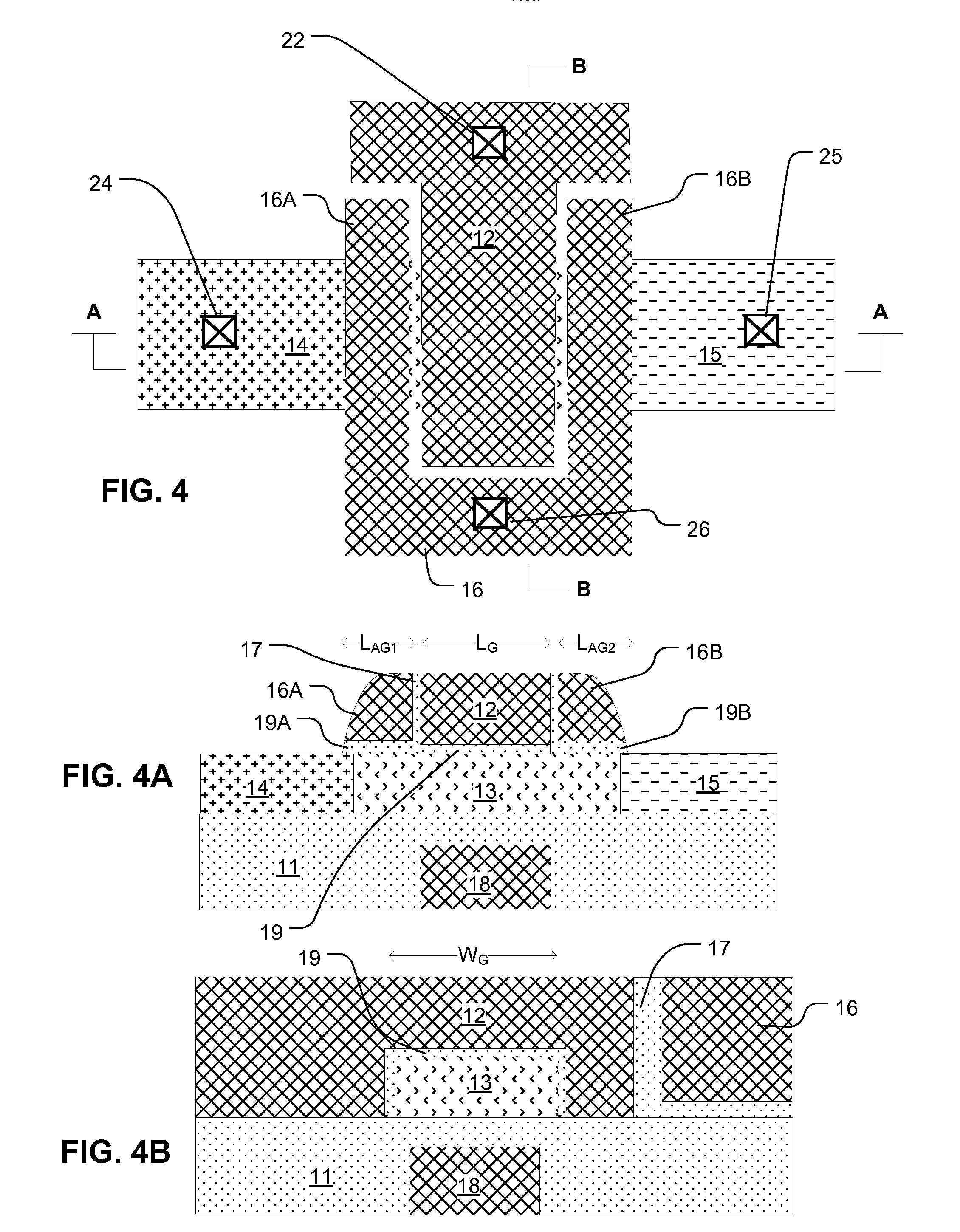Dual-mode memory devices and methods for operating same
a memory device and dual-mode technology, applied in the direction of solid-state devices, semiconductor devices, instruments, etc., can solve the problems of block erase operation requirements, circuitry implementation limitations, and limited flexibility in the layout of integrated circuits, etc., and achieve the effect of low leakage and fast transition times
- Summary
- Abstract
- Description
- Claims
- Application Information
AI Technical Summary
Benefits of technology
Problems solved by technology
Method used
Image
Examples
Embodiment Construction
[0048]A detailed description is provided with reference to the FIGS. 1-31.
[0049]FIG. 1 is a cross-section of a dual-mode transistor structure taken along the channel length dimension. The transistor structure includes a semiconductor body 10 that has a channel region 13, a first terminal region 14 having p-type doping and a second terminal region 15 having n-type doping. In the channel region 13, the semiconductor body can be undoped, or have a doping profile that is configured for a channel according to a particular application of the device. It can be preferred for some applications that the channel region 13 be configured for fully depleted operation, such as by having a width that is less than the maximum depletion width. The semiconductor body 10 is disposed on an insulator 11. The structure can comprise a silicon-on-insulator SOI substrate.
[0050]A gate structure 12 overlies the channel region 13 of the semiconductor body 10. A first assist gate 16A is disposed on a first side ...
PUM
 Login to View More
Login to View More Abstract
Description
Claims
Application Information
 Login to View More
Login to View More - R&D
- Intellectual Property
- Life Sciences
- Materials
- Tech Scout
- Unparalleled Data Quality
- Higher Quality Content
- 60% Fewer Hallucinations
Browse by: Latest US Patents, China's latest patents, Technical Efficacy Thesaurus, Application Domain, Technology Topic, Popular Technical Reports.
© 2025 PatSnap. All rights reserved.Legal|Privacy policy|Modern Slavery Act Transparency Statement|Sitemap|About US| Contact US: help@patsnap.com



